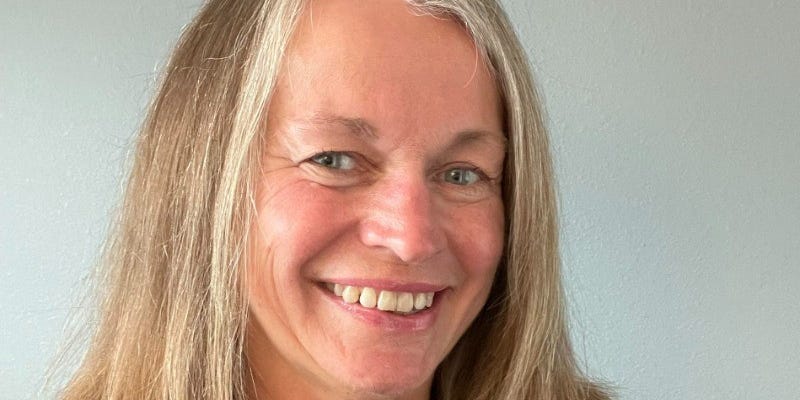Despite earning her bachelor’s degree decades ago, Kris Neilson’s career has remained stagnant.
Neilson, 59, went into retail management after earning a general studies degree with a business concentration. While she moved on to other sales jobs and eventually landed her current role at a nonprofit, her wages weren’t increasing that much, and she wasn’t passionate about the work she was doing.
On top of that, she recognized herself as the second-income earner in her marriage — she was earning money to contribute to the household, which she said fit her and her family’s situation at the time.
But things have changed. Neilson and her then-husband divorced nine years ago, leaving her without a chunk of the income she was used to having to support herself. Her income at the time was enough to cover her basic expenses, but she didn’t have any extra money to put toward retirement, so she started sending out dozens of job applications, to no avail.
“Ageism was, and is, extremely prevalent,” Neilson told Business Insider. “And because I didn’t have a strong skill set, or at least a marketable one, I was barely getting by. I was using family members to help me cover my expenses.”
Neilson took that as a sign that it was time for her to return to school and give herself another chance to advance in her career and further her education. At 57, she enrolled in an online program part time to pursue an MBA, and she graduated this May.
She now has just over $42,000 in student loans, according to documents reviewed by BI — meaning that instead of saving more for retirement, she has to focus on paying off her debt. But she thinks it’ll be worth it.
“I believe in lifelong learning, and I just don’t want to be irrelevant,” Neilson said. “I don’t want my skills to fall back again.”
It can be difficult for older adults to return to school due to the demands of the workforce, but with a degree still providing value in terms of career advancement and higher wages, it’s a path some adults might choose to take. According to a recent National Bureau of Economic Research paper, about 20% of college graduates born in 1930 and later got their degrees after age 30.
Additionally, per the paper, 70% of the increase in overall college completion from 1990 to 2010 can be attributed to the increasing number of adults getting their degrees after their mid-twenties. It found that while younger graduates have the greatest wage benefits they can enjoy for longer, “late graduates also receive a substantial college premium after graduation,” suggesting they can also receive wage benefits.
It’s too early for Neilson to know if her degree will pay off, but she said she didn’t think it was too late to give herself a chance.
“This definitely boosted my confidence, but it certainly doesn’t just feel like I’m set,” she said. “It keeps me hungry for more. I feel like I need to continue to pursue further education, just so I do have something that people want.”
‘It’s scary as hell’
The uncertainty about where Neilson will go now that she has her MBA is unnerving. She’ll soon have to begin paying off her student loans, which means she’ll have even less money to save — and she said she doesn’t see herself retiring until she’s 75, at the earliest.
“I have my MBA, but I’m still a 59-year-old woman, single, and I not only need to keep my skills sharp, but I need to keep my health sharp, so it’s scary as hell,” Neilson said. “The money that I would like to be able to contribute to a retirement account is going to go instead to pay student loans.”
BI has previously spoken to some other older adults who have struggled with career progression later in life. For example, Crystal, a 62-year-old, never received a college degree, and it’s kept her from progressing in the workforce. She said she sees herself working part-time well into retirement because she cannot afford to go without a paycheck.
“With my age, I was just not attractive on paper, and not having a college degree was always a factor, too,” Crystal said. “I could send out 200 applications and résumés and maybe get two calls and then not even be invited in for an interview.”
It shows how, even as more Gen Zers do not see the value of higher education, a degree is still coveted — a recent report from Gallup and the Lumina Foundation found that adults’ interest in higher education is “as at the highest level” the organizations have recorded.
Of course, it’s not something everyone can afford. Still, Neilson said she felt she owed it to herself to take on student loans and continue her education, and she thinks it’s an option that should be more readily available to older adults.
“I don’t want to live life and regret it, but I really shake my head when I think about a path that I wish I would have known about, known better or known different when I was younger and had had the foresight,” Neilson said. “But I’m really glad I did what I did, even though it’s scary to know what the future holds.”
Did you return to school later in life? What impact has it had on you? Share your story with this reporter at asheffey@businessinsider.com.
Read the full article here


